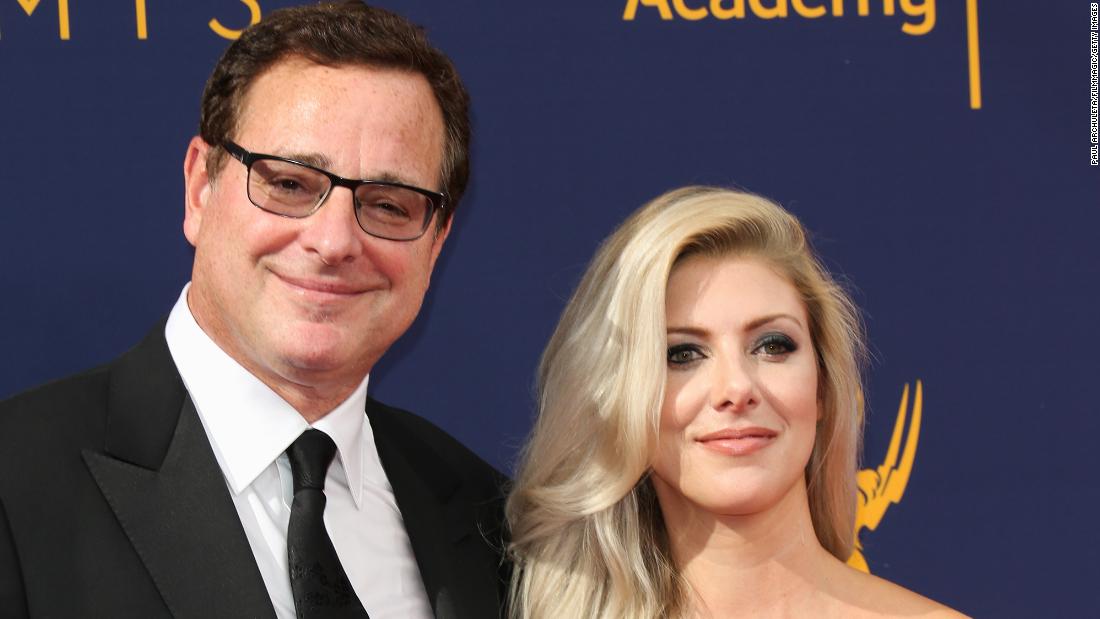In the dynamic world of content creation and marketing, agencies are frequently exposed to various risks that can jeopardize their business and reputation. As marketing agencies continue to innovate and expand their services, understanding the importance of insurance becomes crucial. Whether you're operating in bustling cities like New York, Chicago, Los Angeles, Miami, or Las Vegas, having the right insurance can make a significant difference. This blog post explores the top five reasons why insurance is essential for content creators and marketing agencies, emphasizing how it can safeguard against potential risks like client disputes, data breaches, and more.
1. Protection Against Client Disputes
Client disputes are an inevitable part of the content creation industry. Whether it's a disagreement over project scope, missed deadlines, or dissatisfaction with the final product, such disputes can lead to costly legal battles and damage your agency's reputation.
Professional Liability Insurance—also known as Errors and Omissions Insurance—provides coverage for legal costs and damages that arise from client disputes. This type of insurance can cover claims of negligence, misrepresentation, and mistakes in your work. For marketing agencies in New York or Chicago, where high-stakes clients and competitive environments prevail, having this insurance can prevent financial strain and protect your business’s integrity.
2. Coverage for Data Breaches and Cyber Threats
In today's digital age, data breaches and cyber threats pose significant risks to content creators and marketing agencies. With sensitive client information and proprietary data often being handled, the impact of a cyber attack can be devastating.
Cyber Liability Insurance is essential for addressing the risks associated with data breaches and cyber threats. This insurance can cover the costs of data recovery, legal fees, notification expenses, and even potential lawsuits. For agencies in tech-heavy cities like Los Angeles or Miami, where digital operations are integral to business, having robust cyber liability coverage is a crucial step in safeguarding against these evolving threats.
3. Safeguarding Your Business Assets
Content creators and marketing agencies often invest heavily in equipment, software, and other assets that are vital to their operations. Accidents, theft, or natural disasters can result in significant financial losses if these assets are damaged or lost.
Business Property Insurance provides coverage for physical assets such as office equipment, computers, and software. It can help cover repair or replacement costs in the event of damage from fire, theft, or other covered perils. Agencies based in high-risk areas like Las Vegas, known for its unpredictable weather, can benefit significantly from this coverage to ensure their valuable assets are protected.
4. Liability for Workplace Accidents
Workplace accidents, though often overlooked, can lead to substantial legal and financial repercussions. Whether it’s a slip and fall accident in the office or an injury sustained by a freelancer working on-site, these incidents can result in costly claims and affect your agency’s operations.
Workers' Compensation Insurance is designed to cover medical expenses, lost wages, and legal fees associated with workplace accidents. This insurance is particularly important for agencies with physical offices in cities like Chicago or New York, where the risk of workplace injuries might be higher due to the busy and often high-pressure work environment.
5. Legal Costs and Regulatory Compliance
The marketing and content creation industry is subject to various regulations and legal requirements. Non-compliance with advertising standards, intellectual property laws, or contract obligations can lead to costly legal issues and fines.
Legal Expense Insurance can provide coverage for legal costs associated with defending your agency against lawsuits and regulatory actions. This insurance helps ensure that your agency can manage unexpected legal expenses without disrupting its operations. For agencies operating in highly regulated markets like Miami or Los Angeles, this type of coverage can be a valuable asset in navigating complex legal landscapes.
In the fast-paced and ever-evolving world of content creation and marketing, the risks faced by agencies are diverse and significant. From client disputes and data breaches to workplace accidents and regulatory compliance, the right insurance coverage is essential for protecting your business and reputation.
Whether you are based in the bustling streets of New York, the innovative hubs of Chicago or Los Angeles, or the vibrant locales of Miami and Las Vegas, investing in comprehensive insurance policies tailored to the needs of content creators can safeguard your agency against unexpected challenges. By addressing these potential risks proactively, you can focus on what you do best—creating impactful content and driving success for your clients.
Protect your business today by consulting with an insurance expert who understands the unique needs of content creators and marketing agencies. Ensure you have the right coverage to keep your agency thriving, no matter what challenges come your way.
Detailed Comparison of Insurance for Content Creators
When it comes to protecting your marketing agency or content creation business, choosing the right insurance provider is crucial. Various insurance providers offer different types of coverage, features, and pricing structures tailored to content creators. Below is a detailed comparison of several prominent insurance providers, focusing on key features, coverage limits, and pricing structures to help you make an informed decision.
1. Hiscox Insurance
Key Features
- Professional Liability Insurance Covers errors, omissions, and negligence claims.
- Cyber Liability Insurance Provides coverage for data breaches, cyber attacks, and related expenses.
- Business Property Insurance Covers office equipment and assets against damage or theft.
Coverage Limits
- Professional Liability Up to $1 million per claim and $2 million aggregate.
- Cyber Liability Up to $1 million in coverage.
- Business Property Coverage limits vary based on the policy; typically up to $1 million.
Pricing Structure
- Professional Liability Starting at $350 per year.
- Cyber Liability Starting at $500 per year.
- Business Property Premiums vary based on asset value and location.
Best For Agencies looking for comprehensive coverage with a focus on professional liability and cyber threats.
2. Next Insurance
Key Features
- Professional Liability Insurance Covers claims related to professional services and errors.
- Cyber Liability Insurance Offers protection against data breaches and cyber attacks.
- General Liability Insurance Covers third-party bodily injury and property damage.
Coverage Limits
- Professional Liability Up to $1 million per claim and $1 million aggregate.
- Cyber Liability Up to $500,000 in coverage.
- General Liability Up to $1 million per occurrence and $2 million aggregate.
Pricing Structure
- Professional Liability Starting at $200 per year.
- Cyber Liability Starting at $400 per year.
- General Liability Starting at $300 per year.
Best For Small to medium-sized agencies seeking affordable insurance with basic coverage options.
3. Markel Insurance
Key Features
- Professional Liability Insurance Covers errors, omissions, and negligence.
- Cyber Liability Insurance Includes data breach response, legal costs, and notification expenses.
You saidFrequently Asked Questions About Insurance for Content Creators
1. What types of insurance should content creators and marketing agencies consider?
Content creators and marketing agencies should consider the following types of insurance
- Professional Liability Insurance Covers claims of negligence, errors, and omissions in your services.
- Cyber Liability Insurance Provides protection against data breaches, cyber attacks, and related expenses.
- General Liability Insurance Covers third-party bodily injury and property damage.
- Business Property Insurance Protects against damage or theft of office equipment and assets.
- Workers' Compensation Insurance Covers medical expenses and lost wages for employees injured on the job.
2. What does Professional Liability Insurance cover?
Professional Liability Insurance, also known as Errors and Omissions Insurance, covers claims related to
- Negligence or mistakes in your professional services.
- Breach of contract or failure to deliver on promises.
- Misrepresentation or errors in your work. This insurance helps cover legal costs and damages awarded in such cases.
3. How does Cyber Liability Insurance protect my business?
Cyber Liability Insurance protects against
- Data breaches, including costs related to notification and data recovery.
- Cyber attacks, such as ransomware and hacking incidents.
- Legal fees and settlements resulting from data breaches.
- Reputation management and public relations costs.
4. What is covered under General Liability Insurance?
General Liability Insurance covers
- Bodily injury If someone is injured on your premises or due to your services.
- Property damage If you cause damage to someone else’s property.
- Advertising injury Claims related to copyright infringement, defamation, or false advertising.
5. How do I determine the right coverage limits for my insurance?
Coverage limits depend on several factors
- Size of your business Larger businesses may need higher limits.
- Nature of your services High-risk services may require more coverage.
- Client contracts Some clients may require specific insurance limits. Consult with an insurance broker to assess your specific needs and determine appropriate coverage limits.
6. What is the typical cost of insurance for content creators?
The cost of insurance varies based on
- Type of coverage (e.g., professional liability, cyber liability).
- Coverage limits and deductibles.
- Size and location of your business.
- The level of risk associated with your services.
On average, professional liability insurance might start around $200 to $350 per year, while cyber liability insurance can range from $400 to $500 per year. Business property and general liability insurance costs will vary based on your specific needs and asset values.
7. What should I do if I need to file a claim?
If you need to file a claim
- Notify your insurance provider Contact your insurance company as soon as possible.
- Document the incident Gather all relevant information, including details of the incident, any correspondence, and evidence.
- Follow procedures Adhere to the claims process outlined by your insurer, which may include completing claim forms and providing supporting documentation.
- Cooperate with investigations Provide any requested information and cooperate with the insurer’s investigation.
8. How long does it take to process a claim?
The time to process a claim can vary depending on
- Complexity of the claim More complex claims may take longer to investigate and resolve.
- Type of insurance Different types of insurance have different processing times.
- Insurer's procedures Each insurance company has its own claim processing timelines.
Generally, insurers aim to handle claims efficiently, but it’s best to check with your provider for specific timelines and updates on your claim.
9. Can I customize my insurance policy to fit my business needs?
Yes, many insurance providers offer customizable policies to better fit your business needs. You can often tailor coverage options, limits, and deductibles to match your specific requirements. Working with an insurance broker can help you design a policy that addresses your unique risks and coverage needs.
10. How often should I review and update my insurance policy?
You should review and update your insurance policy regularly, especially when
- Your business changes Significant changes in your business size, services, or operations.
- Client requirements New or existing clients require higher coverage limits.
- Regulatory changes Updates to industry regulations that impact your coverage needs.
An annual review with your insurance broker can ensure your coverage remains adequate and relevant.
11. What happens if I don’t have the right type of insurance?
Not having the appropriate insurance can lead to
- Financial loss You may be responsible for covering legal costs, damages, and other expenses out-of-pocket if you're not insured properly.
- Reputation damage A lack of coverage can affect your business’s credibility, especially if a client dispute or data breach occurs.
- Legal consequences In some cases, failing to have certain types of insurance might result in non-compliance with contractual or regulatory requirements.
12. Are freelancers and independent contractors covered under my insurance policy?
Coverage for freelancers and independent contractors typically depends on your policy
- Professional Liability Insurance Often covers subcontractors if their work is part of your services, but you should confirm this with your insurer.
- Workers' Compensation Insurance Usually does not cover independent contractors. They need their own coverage if required by law or contract. It’s essential to check with your insurance provider to understand how your policy covers freelancers and independent contractors.
13. How can I lower my insurance premiums?
You can potentially lower your premiums by
- Bundling policies Combining different types of coverage (e.g., general liability and professional liability) with the same insurer may offer discounts.
- Increasing deductibles Opting for higher deductibles can reduce your premium costs, though it means you’ll pay more out-of-pocket if a claim occurs.
- Implementing risk management practices Demonstrating proactive risk management, such as regular data backups and employee training, can lead to lower premiums.
- Reviewing coverage needs Regularly reviewing and adjusting your coverage to fit your actual needs can avoid paying for unnecessary coverage.
14. What should I look for when choosing an insurance provider?
When selecting an insurance provider, consider
- Reputation and reliability Choose a provider with a strong reputation for customer service and claim handling.
- Coverage options Ensure they offer the types and levels of coverage that fit your business needs.
- Pricing and terms Compare premiums, deductibles, and policy terms to find the best value.
- Customer support Evaluate their support services, including how easily you can contact them and how they handle claims.
15. Is insurance required by law for content creators and marketing agencies?
While insurance requirements vary by state and the nature of your business, certain types of insurance might be legally required
- Workers' Compensation Insurance Typically required by law if you have employees.
- Professional Liability Insurance Not usually mandated by law but may be required by clients or contracts.
- General Liability Insurance Often required for business operations, especially if you have a physical location or interact with the public.
It’s crucial to check local regulations and industry standards to ensure compliance with any legal requirements.
16. How do I determine if my existing policy needs an update?
Review your existing policy regularly, especially when
- Business growth Your business expands or changes in scope.
- Client contracts You take on new clients or enter into new contracts with different insurance requirements.
- Industry changes New regulations or standards impact your coverage needs.
- Major incidents After experiencing a significant event that might affect your risk profile.
Consulting with an insurance broker can help assess whether updates or additional coverage are necessary.
17. Can I get coverage for international clients or projects?
Yes, many insurers offer coverage for international clients or projects, but you need to
- Specify international coverage Ensure your policy includes provisions for international operations.
- Understand exclusions Be aware of any exclusions related to international work or specific countries.
- Consult your insurer Discuss your international activities with your insurance provider to ensure adequate coverage.
18. What role does an insurance broker play in selecting my policy?
An insurance broker
- Assesses needs Helps evaluate your business risks and insurance needs.
- Provides options Offers a range of insurance options from different providers.
- Customizes coverage Assists in tailoring a policy to fit your specific requirements.
- Supports claims Guides you through the claims process and advocates on your behalf.
Working with a knowledgeable broker can ensure you find the best coverage for your business.
19. How do I handle disputes with my insurance provider?
To address disputes with your insurance provider
- Review the policy Ensure you understand the terms and conditions of your coverage.
- Document everything Keep detailed records of all communications and transactions related to the dispute.
- Communicate clearly Contact your insurer to discuss the issue and seek resolution.
- Seek mediation If needed, consider mediation or arbitration services to resolve the dispute.
- Consult legal advice For complex or unresolved issues, consult with an attorney specializing in insurance disputes.
20. What are the benefits of having insurance for content creators?
The benefits include
- Financial protection Coverage for legal costs, damages, and other expenses.
- Business continuity Helps ensure that your business can continue operating after an incident.
- Client trust Demonstrates professionalism and commitment to risk management.
- Peace of mind Reduces stress and uncertainty by knowing you are protected against various risks.
.png)
.jpg)







 English (US) ·
English (US) ·